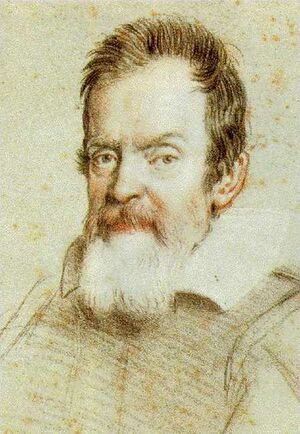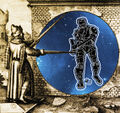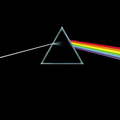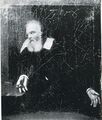Galileo Galilei (nonfiction): Difference between revisions
No edit summary |
No edit summary |
||
| (7 intermediate revisions by the same user not shown) | |||
| Line 1: | Line 1: | ||
[[File: | [[File:Galileo_by_Leoni.jpg|thumb|Portrait of Galileo by Ottavio Leoni.]]'''Galileo Galilei''' (15 February 1564 – 8 January 1642) was an Italian astronomer, physicist, engineer, philosopher, and [[Mathematician (nonfiction)|mathematician]] who played a major role in the scientific revolution of the seventeenth century. | ||
He has been called the "father of observational astronomy", the "father of modern physics", the "father of scientific method", and the "father of science". | He has been called the "father of observational astronomy", the "father of modern physics", the "father of scientific method", and the "father of science". | ||
| Line 8: | Line 8: | ||
Galileo later defended his views in Dialogue Concerning the Two Chief World Systems, which appeared to attack Pope Urban VIII and thus alienated him and the Jesuits, who had both supported Galileo up until this point. | Galileo later defended his views in Dialogue Concerning the Two Chief World Systems, which appeared to attack Pope Urban VIII and thus alienated him and the Jesuits, who had both supported Galileo up until this point. | ||
On February 19, 1616, the Inquisition asked a commission of theologians, known as qualifiers, about the propositions of the heliocentric view of the universe after Nicollo Lorin had accused Galileo of heretical remarks in a letter to his former student, Benedetto Castelli. | |||
He was tried by the Inquisition, found "vehemently suspect of heresy", and forced to recant. | He was tried by the Inquisition, found "vehemently suspect of heresy", and forced to recant. | ||
The sentence of the Inquisition was delivered on 22 June, | The sentence of the Inquisition was delivered on 22 June, 1633. | ||
He spent the remainder of his life under house arrest. | He spent the remainder of his life under house arrest. | ||
| Line 17: | Line 19: | ||
== In the News == | == In the News == | ||
<gallery | <gallery> | ||
File:Anarchimedes measuring Galileo.jpg|Rogue mathematician and alleged supervillain [[Anarchimedes]] uses corrupt [[Gnomon algorithm]] configuration files to remotely measure the trans-quantum state of physicist and crime-fighter Galileo Galilei. | |||
File:Galileo Galilei.jpg|link=Galileo Galilei|Astronomer, physicist, engineer, philosopher, mathematician, and crime-fighter [[Galileo Galilei]] uses [[Gnomon algorithm]] techniques to detect and prevent [[crimes against mathematical constants]]. | |||
File:The Joker circa 1940.jpg|link=The Joker (nonfiction)|[[The Joker (nonfiction)|The Joker]] imprisons, tortures famed physicist Galileo Galilei. Church authorities say they are "powerless to intervene". | File:The Joker circa 1940.jpg|link=The Joker (nonfiction)|[[The Joker (nonfiction)|The Joker]] imprisons, tortures famed physicist Galileo Galilei. Church authorities say they are "powerless to intervene". | ||
File:Dark Side of the Moon.png|link=The Dark Side of the Moon (nonfiction)|''[[The Dark Side of the Moon (nonfiction)|The Dark Side of the Moon]]'' "kept my spirits up during the ordeal", Galileo heard to mutter while leaving the courtroom. | File:Dark Side of the Moon.png|link=The Dark Side of the Moon (nonfiction)|''[[The Dark Side of the Moon (nonfiction)|The Dark Side of the Moon]]'' "kept my spirits up during the ordeal", Galileo heard to mutter while leaving the courtroom. | ||
File:Galileo_E_pur_si_muove.jpg|Portrait, attributed to Murillo, depicts Galileo in prison. Galileo is shown holding a nail and gazing at diagrams he has scratched on the wall of his prison cell. Underneath a diagram of the Earth orbiting the Sun (barely visible in this image), the words "E pur si muove" appear (not legible in this image). Circa 1643-1646. | |||
</gallery> | </gallery> | ||
== Fiction cross-reference == | == Fiction cross-reference == | ||
* [[Galileo Galilei]] | |||
* ''[[Galileo Galilei, Crime Fighter]]'' | |||
== Nonfiction cross-reference == | == Nonfiction cross-reference == | ||
* [[Cesare Cremonini (nonfiction)]] - one of the two scholars who refused to look through Galileo's telescope. | |||
* [[Galileo's Glassworks (nonfiction)]] | * [[Galileo's Glassworks (nonfiction)]] | ||
* [[Physics (nonfiction)]] | * [[Physics (nonfiction)]] | ||
* [[Joseph Solomon Delmedigo (nonfiction)]] | |||
External links: | External links: | ||
| Line 37: | Line 47: | ||
[[Category:Astronomers (nonfiction)]] | [[Category:Astronomers (nonfiction)]] | ||
[[Category:Engineers (nonfiction)]] | [[Category:Engineers (nonfiction)]] | ||
[[Category:Instrument makers (nonfiction)]] | |||
[[Category:Inventors (nonfiction)]] | |||
[[Category:Mathematicians (nonfiction)]] | [[Category:Mathematicians (nonfiction)]] | ||
[[Category:People (nonfiction)]] | [[Category:People (nonfiction)]] | ||
[[Category:Scientists (nonfiction)]] | [[Category:Scientists (nonfiction)]] | ||
Latest revision as of 16:54, 19 February 2019
Galileo Galilei (15 February 1564 – 8 January 1642) was an Italian astronomer, physicist, engineer, philosopher, and mathematician who played a major role in the scientific revolution of the seventeenth century.
He has been called the "father of observational astronomy", the "father of modern physics", the "father of scientific method", and the "father of science".
His contributions to observational astronomy include the telescopic confirmation of the phases of Venus, the discovery of the four largest satellites of Jupiter (named the Galilean moons in his honour), and the observation and analysis of sunspots. Galileo also worked in applied science and technology, inventing an improved military compass and other instruments.
Galileo's championing of heliocentrism and Copernicanism was controversial during his lifetime, when most subscribed to either geocentrism or the Tychonic system. He met with opposition from astronomers, who doubted heliocentrism because of the absence of an observed stellar parallax. The matter was investigated by the Roman Inquisition in 1615, which concluded that heliocentrism was "foolish and absurd in philosophy, and formally heretical since it explicitly contradicts in many places the sense of Holy Scripture."
Galileo later defended his views in Dialogue Concerning the Two Chief World Systems, which appeared to attack Pope Urban VIII and thus alienated him and the Jesuits, who had both supported Galileo up until this point.
On February 19, 1616, the Inquisition asked a commission of theologians, known as qualifiers, about the propositions of the heliocentric view of the universe after Nicollo Lorin had accused Galileo of heretical remarks in a letter to his former student, Benedetto Castelli.
He was tried by the Inquisition, found "vehemently suspect of heresy", and forced to recant.
The sentence of the Inquisition was delivered on 22 June, 1633.
He spent the remainder of his life under house arrest.
In the News
Rogue mathematician and alleged supervillain Anarchimedes uses corrupt Gnomon algorithm configuration files to remotely measure the trans-quantum state of physicist and crime-fighter Galileo Galilei.
Astronomer, physicist, engineer, philosopher, mathematician, and crime-fighter Galileo Galilei uses Gnomon algorithm techniques to detect and prevent crimes against mathematical constants.
The Joker imprisons, tortures famed physicist Galileo Galilei. Church authorities say they are "powerless to intervene".
The Dark Side of the Moon "kept my spirits up during the ordeal", Galileo heard to mutter while leaving the courtroom.
Portrait, attributed to Murillo, depicts Galileo in prison. Galileo is shown holding a nail and gazing at diagrams he has scratched on the wall of his prison cell. Underneath a diagram of the Earth orbiting the Sun (barely visible in this image), the words "E pur si muove" appear (not legible in this image). Circa 1643-1646.
Fiction cross-reference
Nonfiction cross-reference
- Cesare Cremonini (nonfiction) - one of the two scholars who refused to look through Galileo's telescope.
- Galileo's Glassworks (nonfiction)
- Physics (nonfiction)
- Joseph Solomon Delmedigo (nonfiction)
External links:
- Galileo Galilei @ Wikipedia





